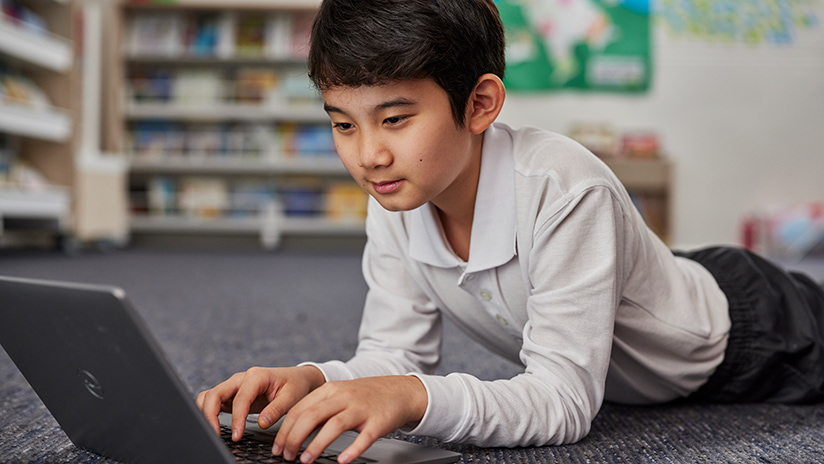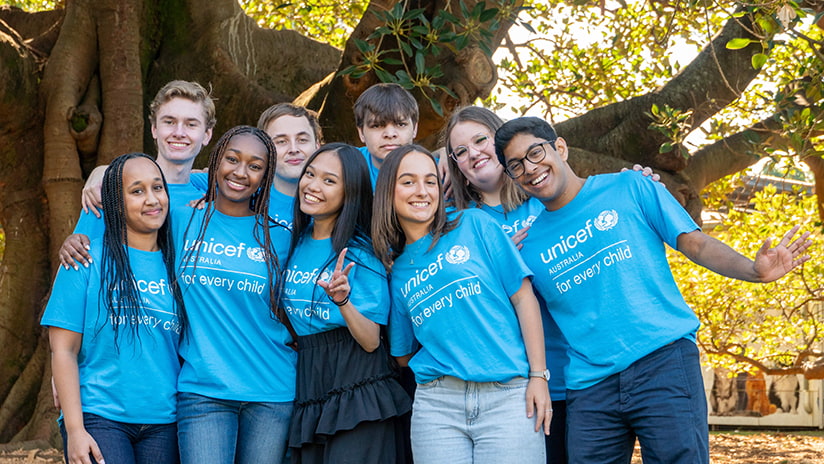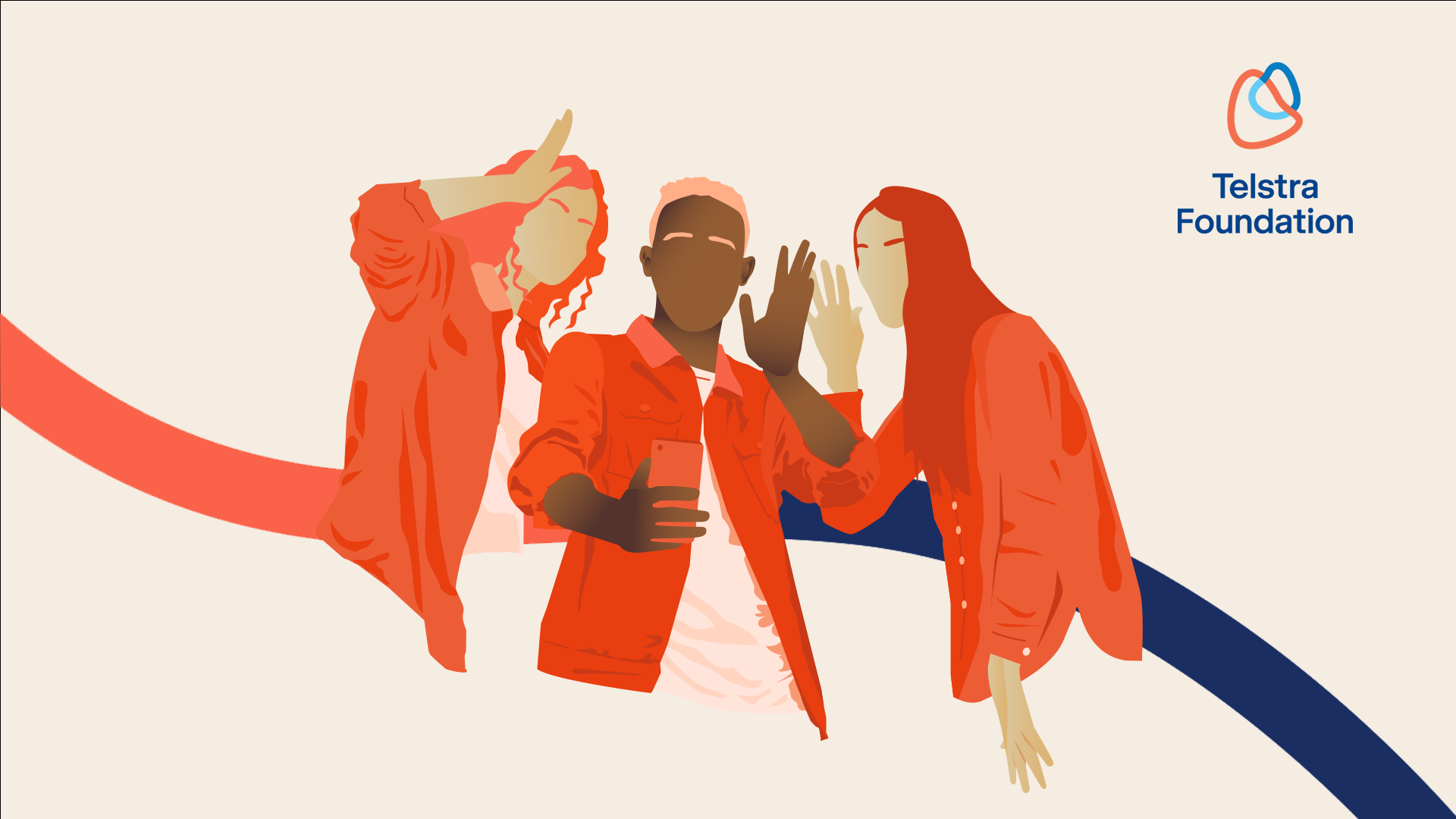Our mission
We’re on a mission to help one million children and young people across Australia to be more included, empowered, and connected by 2030.
Helping us achieve this are eleven amazing non-profit organisations we’re partnering with through our Young & Connected fund. They’re delivering remarkable programs, co-designed with children and young people that are going to make a real difference.
Our three focus areas
We’ve paired up with eleven amazing non-profit organisations who’ve joined us through our Young & Connected fund. They’ll deliver an incredible range of programs – many co-designed with children and young people – that will contribute positively to our three key focus areas.
These are:
- Included: enhancing digital skills and careers.
- Empowered: promoting digital safety and wellbeing.
- Connected: ensuring access and connectivity.
In this article, we’re delving into our Empowered focus area and the partners that will help to make an impact in this space.
Read our articles about our ‘Included‘ focus area, “Telstra Foundation: bringing more young people into the digital world,” and our ‘Connected‘ focus area, “Connecting young people: a look at technology access and mental health services for young Australians.”
Why we’re focussed on empowering children and young people
Globally, young people are leading the way in connectivity, with 79% of those aged 15 to 24 being online in 2023, compared to 65% of the broader population. They are also spending more time online from a younger age than any previous generation1Refer to footnotes. In fact, in Australia, teens spend 14.4 hours online each week2Refer to footnotes.
For children and young people this opens up untold possibilities for communication, education, social interactions, and entertainment, along with access to a diverse range of information not readily available before. This adds up to more opportunities and on the flip side, more risk.
Right now, everyone in Australia – from the government and schools to the media and families – are concerned about young peoples’ digital lives. They’re trying to figure out what it means for this generation to be the first to grow up online.
We know that children and young people face risks online – 45% of Australian children have reported been bullied online, and 62% of teens have reported being exposed to harmful content3Refer to footnotes. But they can also play, connect and find the support and communities that help them thrive, 81% of teens say social media has a positive influence on their lives4Refer to footnotes.
Not everyone has equal access and experience online
Knowing there can be huge benefits to being online while cognisant of the risks, it’s important to acknowledge that not all children and young people, particularly those in underserved communities, have access to the digital skills and support they need to participate equally.
Additionally, families and carers in these communities need their own support to build various digital skills, like online safety, managing household tech, and helping kids with homework online. Without these skills, there’s a risk children and young people in these homes will fall behind in education and subsequently, employment in the digital age.
That’s why we’re partnering with The Smith Family and UNICEF Australia to empower children, young people and their communities to build the digital skills to help them thrive equally.
Why being included is so important
Almost 70 per cent of Australian workers already use digital skills in their jobs. And this number is set to rise to 90 per cent in the next five years.1Refer to footnotes
Without the access to digital skills, our young people could be held back in their future careers and everyday lives. We want all children and young people to be equipped with the digital skills they need, but unfortunately this is not the case for many.
Those experiencing (or at risk of) mental ill-health, First Nations, refugee and migrant community members, LGBTQI+ backgrounds, living in regional, rural, or remote communities, living with a disability, from low socio-economic backgrounds, and those who are neuro-diverse, don’t always have access to the quality digital skills education that they deserve.
That’s why we’ve chosen this first group of partners who are delivering some incredible programs to make a positive impact in this space.
Footnoes
- United Nations, Child and Youth Safety Online
- eSafety Commissioner – Digital lives of Aussie Teens 2020
- eSafety Commissioner (2022), Mind the Gap: Parental awareness of children’s exposure to risks online
- UNICEF Australia (2024), Protecting children in the online world: Reshaping the digital world for Aussie kids
Our three focus areas

The Smith Family
Based on the insight that parents play a pivotal role in shaping their children’s online experiences, the ‘Digital Skills Enhancement Project’ aims to increase parent’s and thereby children’s digital skills and confidence.
Through this project, The Smith Family will provide curated digital skills and online safety resources to all their Learning for Life families via an online portal, providing accessible and trusted information for around 120,000 people.
We want the same opportunities for the students we work with as their peers. Helping their parents be confident, having the skills to have the conversations at home, discuss technology and explore how to do this safely is the first step.
- Doug Taylor, CEO The Smith Family

UNICEF Australia
The ‘Protecting children in the online world’ project works towards reshaping the digital environment to be safer and more beneficial for children and young people in Australia. Through a mix of, research, delivering education resources and tools, and raising public awareness, UNICEF Australia will ensure young people, parents and teachers are better equipped with innovative new tools and resources, to respond to the challenges they face in the online world.
Young people have a right to be safe online. UNICEF Australia wants to see an online world where children and young people can get all the benefits of the digital world, while also being protected from online harms.
By listening to children and young people, this project will allow UNICEF Australia to advocate for positive changes to be made… to ensure better design and governance of the digital landscape, minimising risks and online harms, and leaving young people empowered to make the most of the opportunities in an expanding digital world.
- Libby Hodgson, Deputy Director, UNICEF Australia
Our ‘Empowered’ partners want to enable a kinder, safer and more fun online world, so children and young people can successfully navigate the connected world in which they live, along with its benefits, risks and challenges

